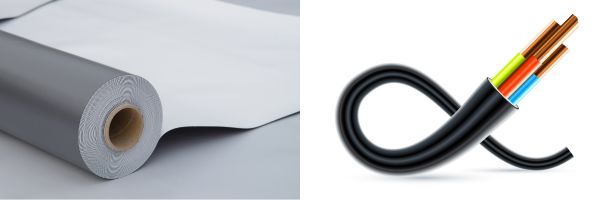
SKFP introduces a new ethylene-acrylate copolymer, LOTRYL® 40MA05T, containing 40w% of methyl acrylate. This new product results from customer requests for cost-competitive highly polar and extremely flexible copolymers. The main targeted markets for this new product are:
- Flexible cables, including those kept in exterior conditions since the acrylate chemistries are well-known for their resistance to UV radiations and to temperature;
- Virgin or recycled engineering plastics impact modification and flexibilization; the high flexibility of LOTRYL® 40MA05T is extremely efficient for these two objectives. In addition the high methyl acrylate content also brings compatibility with polar resins such as PA, PBT, PET, ABS,….
This brand-new product has required several years of research to achieve this extremely high acrylate content. It has already been produced several times in SKFP Balan plant in France. Its production using a tubular process was selected to produce a copolymer with chains highly rich in acrylate. In spite of the high content of acrylate, this new product maintains a melting temperature of 76°C.
Contrarily to EVA, the acrylate chemistry enables the one-step synthesis of this acrylate-rich LOTRYL® while maintaining a relatively low MFI. This new product is expected to be a cost-effective and performing alternative to EVA with 40%VA content and low MFI. EMA copolymers are more thermally stable than EVA. The softness of LOTRYL® 40MA05T makes it a good candidate in shock-absorbing foams for shoes and sound deadening automotive baffles.
The high polarity of LOTRYL 40MA05T is expected to be helpful in formulations such as hot melt adhesives, HFFR compounds, sound deadening foams as well as the carrier for masterbatches.
Due to its acrylate-rich elastomeric phase this product will be evaluated as a non-migrating plasticizer of chlorinated plastics such as PVC.
Typical characteristics of LOTRYL® 40MA05T
| Characteristics | Value | Unit | Standard |
| Methyl Acrylate content | 40 | %w | FTIR (internal method) |
| Melting point | 76 | °C | ISO 11357-3 |
| Melt Index (190°C/2.16kg) | 5 | g/10min | ISO 1133 / ASTM D1238 |
| Vicat softening temperature (10N)* | <40 | °C | ISO 306 / ASTM D1525 |
*On compression moulded sample